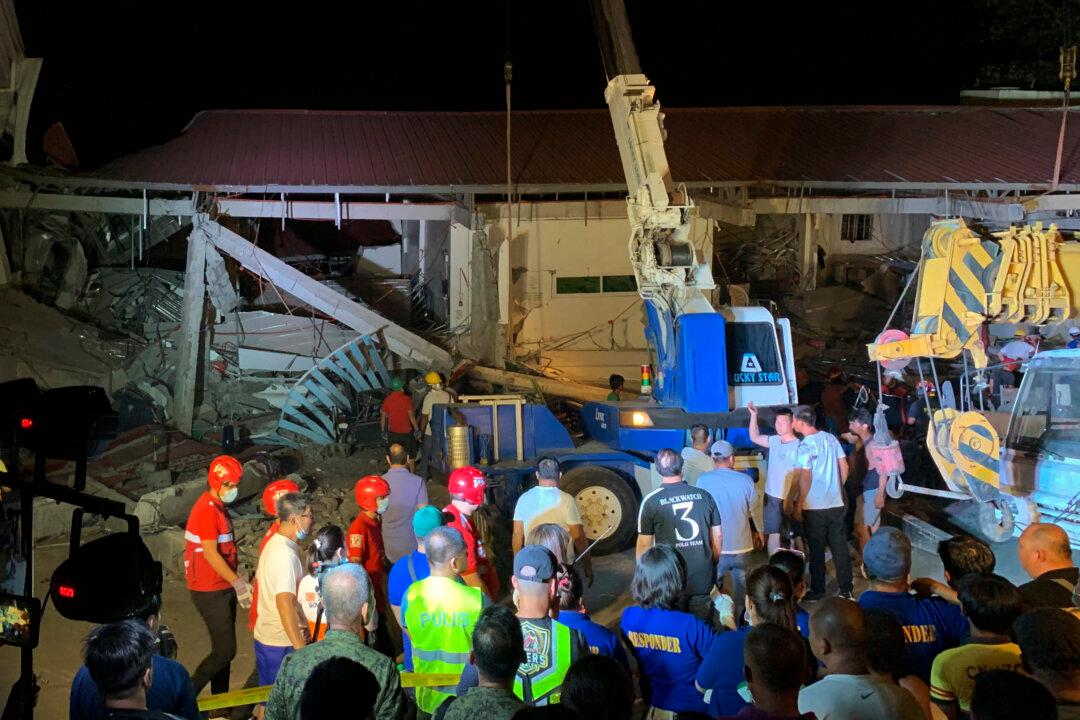PORAC, Philippines—A strong earthquake killed three people and trapped at several others April 22 in a collapsed building that housed a supermarket in a northern Philippine province, where an international airport terminal was closed due to damage, officials said.
Mayor Condralito dela Cruz of Porac town in Pampanga province, north of Manila, said rescuers pulled two survivors from the collapsed building, where other trapped people could be heard screaming for help as rescuers struggled to save them.





